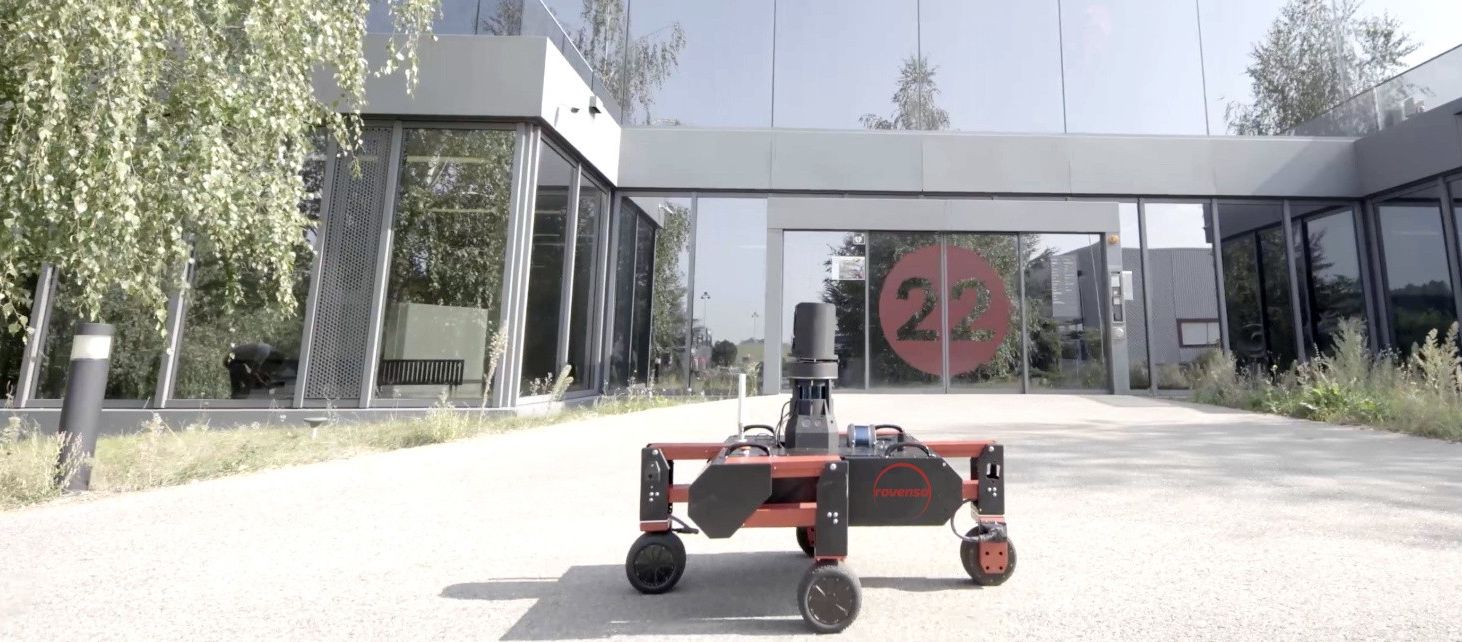
The well-known robotics start-up Rovenso has gone bankrupt. We spoke to CEO Thomas Estier about the reasons, the lessons learned and the more positive aspects of failure.
Rovenso’s bankruptcy was announced in the commercial register of canton Fribourg on 5 October. Shortly thereafter, Thomas Estier, co-founder and CEO of the robotics start-up, spoke up on LinkedIn. He reported on the company’s demise and gave initial information about the reasons. More than 60 people commented on the LinkedIn post – all positively. “I think the attitude towards failure is definitely changing in Switzerland,” says Estier.
The reasons given for the end were two factors that led to very long delays in the development of the company. At the end of 2019, Rovenso completed a seed round and demos with potential pilot customers should have followed, but the pandemic threw a spanner in the works. It was not until May 2021 that the team was able to demonstrate the latest robot for the first time on site at a potential customer. “These demos are crucial for our product. Customers have to be able to see how the robot moves through their factory or site, and how it orientates itself,” says Estier.
When the demos were able to finally take place, they were very successful and Rovenso attracted pilot customers such as RTE, SNCF subsidiary Keolis, Bouygues, Lyon-Saint Exupéry Airport and Aurubis in Germany. However, the money threatened to run out for the first time and in autumn 2021 the start-up’s backers injected another CHF 1 million as part of a bridge financing.
In 2022, the supply chain crisis added a new problem, with the start-up having to wait almost a year for some components. Although the first orders for the robots had come in and several distribution partners were on board, Estier realised that the company would be able to sell only a maximum of 10 robots this year. This new delay made another round of financing necessary, but this was not forthcoming.
The initial lessons, as the company founder shares, are that persistence, which usually helps entrepreneurs to build a business, should not prevent the necessary adjustment in crisis situations. And Estier assumed for too long that this was just another crisis situation, one that the team had dealt with on numerous previous occasions. He did not recognise the seriousness of the situation until too late. He also learned that although investors understand that the pandemic and supply shortages have caused delays, that does not make them more patient. “In retrospect, I should have started looking for alternatives to financing with traditional start-up investors earlier,” Estier admits frankly.
He is currently in the process of handling the bankruptcy administration. All other team members, including the co-founders, have already gone for new opportunities. “They have found interesting new jobs without any problems,” says Estier.
(Stefan Kyora)























































Please login or sign up to comment.
Commenting guidelines